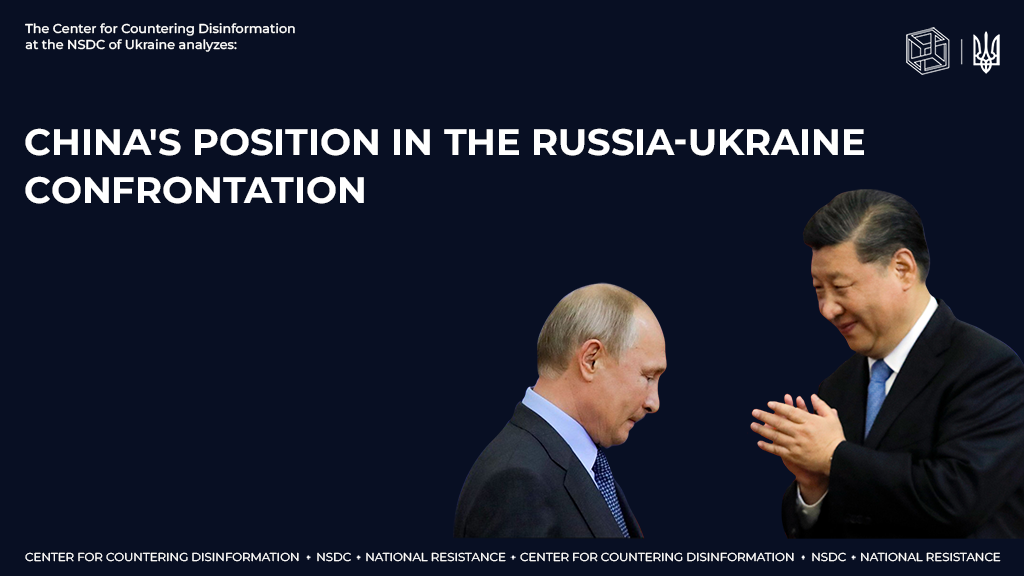China’s position in the russia-Ukraine confrontation in the context of russian propaganda statements about China’s support for the kremlin’s actions.
The principle of China’s moderation in the “Ukrainian issue” is explained by the fact that the Chinese leadership is shaping its attitude to russian aggression by drawing parallels in the plane of relations between China and Taiwan.
The Chinese leader signed a directive on the “non-military” use of the armed forces, which came into force on June 15. The G7 countries are concerned that Beijing is planning an invasion of Taiwan under the guise of a special operation that is not classified as war.
The fundamental principle of the Sino-Ukrainian Treaty of Friendship and Cooperation states that China supports Ukraine’s policy aimed at the unity of the state and its territorial integrity.
China’s military leadership assures that Beijing did not materially assist russia in the war with Ukraine. It also asserts that China-russia relations are a partnership, not an alliance against any third country.
However, despite statements about its intention to remain neutral in russia’s war against Ukraine, official Beijing often repeats russian propaganda about the United States being to blame for the conflict and the need for agreements between russia and NATO.
The importance for China of russia’s resource, technological, economic and military potential in the context of confrontation with the United States puts russia in a subordinate position. Therefore, for the period of Western sanctions, moscow will be increasingly involved in political and military cooperation with Beijing.
Thus, a formal russian-Chinese military alliance or situational military cooperation is hypothetically possible. This is quite realistic in the event of a crisis in Taiwan, but unlikely in the case of Ukraine.
At the same time as European and American companies are leaving, Chinese companies are ready to occupy many important segments of the russian market. These are mostly companies with strong positions in mechanical engineering, information and communication technologies, and the aerospace industry, which are under sanctions in russia.
One of the vectors of cooperation between russia and China is the purchase of russian oil in huge quantities. From March to May, China tripled its imports of crude oil from russia compared to 2021. And since the beginning of the year, russian electricity supplies to China have doubled to 1.78 billion kWh. China buys electricity at a price of $0.5 per kW.
However, this is unlikely to replace russia’s lost electricity supplies to Finland, Latvia and Lithuania, which in 2021 amounted to about 13 billion kWh. And the increase in russian raw material exports to China is constrained by the capacity of railways, pipelines, and port terminals.
The Chinese leadership is concerned about the possible weakening of economic relations with Europe. Many European companies are reconsidering their investment projects in China due to the politicization of the business climate and “predictability versus unpredictability.” At the same time, Chinese emissaries in Europe are convincing governments that China remains a reliable partner and offers numerous economic opportunities.
At the same time, they also recognize that China has made some diplomatic miscalculations regarding russia’s war against Ukraine. In particular, for underestimating the risks of a russian-Ukrainian war, the Chinese Foreign Ministry demoted the deputy foreign minister in charge of russia. Although, of course, such political decisions are made centrally in China.
According to the Chinese leader, “the world must collectively fight against hegemony and brute force politics, because the crisis in Ukraine has proven that the pursuit of one’s own security at the expense of the security of other countries inevitably leads to a security dilemma.”
Thus, China has faced a strategic dilemma due to tensions with the West over its neutrality in relation to russian aggression. And China’s refusal to condemn russia for its aggression is becoming less and less popular among the population.










